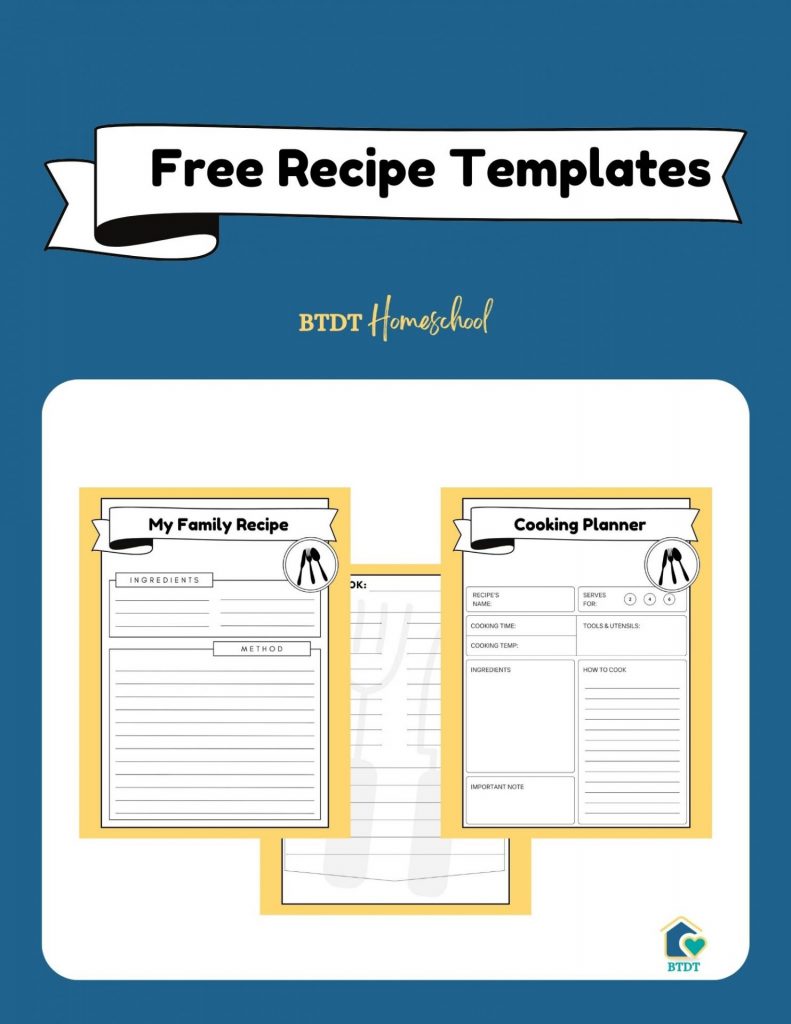Homeschooling in the Kitchen

Encouraging kids to learn how to cook is an invaluable life skill that extends far beyond the kitchen. It’s a journey that introduces them to the basics of nutrition, math through measurements, science in understanding how ingredients interact, and creativity in crafting their culinary creations. Tune in to learn more!
TWO WAYS TO LISTEN TO THIS EPISODE:
1. Click PLAY Button Above ^^ to listen here.
2. OR Listen on your favorite podcast platform:
Episode 057:
Subscribe on Your Favorite Podcast Platform:
Scroll down for this week’s FREEBIE:
Recipe Templates (pdf)
Are you just starting your homeschooling journey? We’re here to help! Begin with our Get Started in Homeschooling page and Homeschooling FAQ to make the transition smoother. If you’re guiding a young child, explore our How to Homeschool Kindergarten. to make those first steps special. For middle schoolers, don’t miss our Middle School page packed with tips and advice. And if you’re heading into the high school years, our Essential Steps to Homeschool High School will guide you every step of the way!
Show Notes
Encouraging kids to learn how to cook is an invaluable life skill that extends far beyond the kitchen. It’s a journey that introduces them to the basics of nutrition, math through measurements, science in understanding how ingredients interact, and creativity in crafting their culinary creations. Cooking also helps kids gain confidence and the importance of following instructions.
Beyond the practical skills, it can be an opportunity for bonding. Families can spend quality time together in the kitchen sharing stories and creating lasting memories. You know we always talk about cultivating curiosity and exploration and a lot of homeschoolers find this happening in the kitchen as children experiment with recipes and flavors. This kind of exploration can spark a passion that can last a lifetime. Learning to cook empowers kids and giving them the tools and opportunities to present their creations really gives them a sense of pride. In today’s episode, we’re going to talk about the many skills your kids can learn in the kitchen, we’re going to talk about some basic foods everyone should know how to make (especially when your kids go off to college or move into their own home), and we have some really great resources and cookbooks that will help guide you as you teach them these skills.
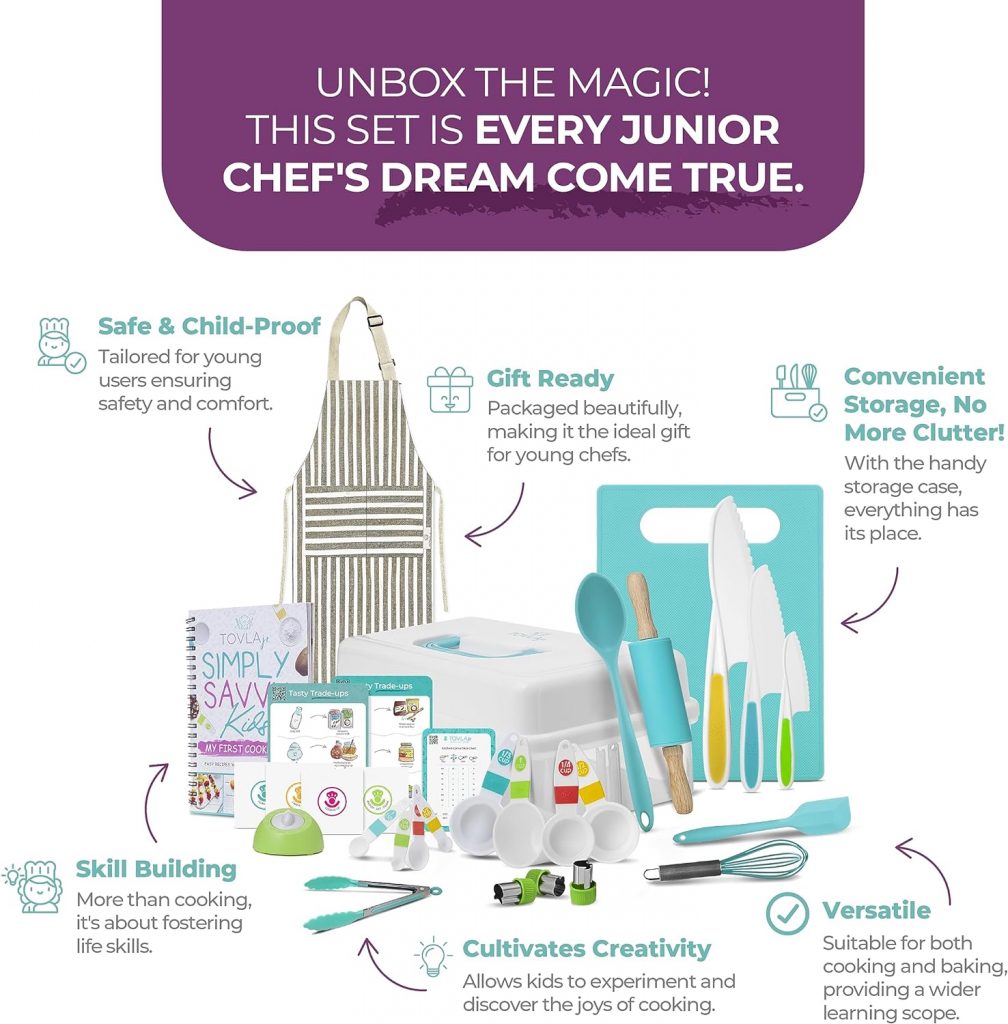
Teaching kitchen skills to our kids is a hands-on and practical approach to education that extends well beyond just making meals. It teaches a sense of responsibility and fosters independence as they learn skills and cook more and more on their own. It’s also an opportunity to blend various subjects seamlessly; from math during measurement and fractions to science through understanding chemical reactions in baking, and even cultural studies by exploring diverse cuisines.
Beyond the academics, your kids will gain so many life skills like following instructions, time management, and organization. If you think about it, there’s a lot that goes into cooking and this may be second nature for you because you’ve been doing it so long, but these skills are not intuitive. But thankfully homeschooling gives you so much extra time with your kids to teach these skills. And it’s really a perfect way to bond as a family, encouraging teamwork as everyone works together. Speaking of family, it’s also a great way to share traditions and stories. I love when my parents tell me stories of Cuba and foods they grew up with as we sit down to enjoy that traditional Cuban recipe. Or learn the way that our family has done things through generations. Now it’s our turn now to pass on these traditions to our children.
Essential Kitchen Skills Kids Should Know (9:29)
Mastering fundamental kitchen skills can set a strong foundation for kids to become confident and capable in the kitchen. Here are five essential skills:
Knife Skills:
Learning how to safely handle and use knives is crucial. Kids should understand how to properly hold a knife, basic cutting techniques, and knife safety to chop, slice, and dice ingredients.
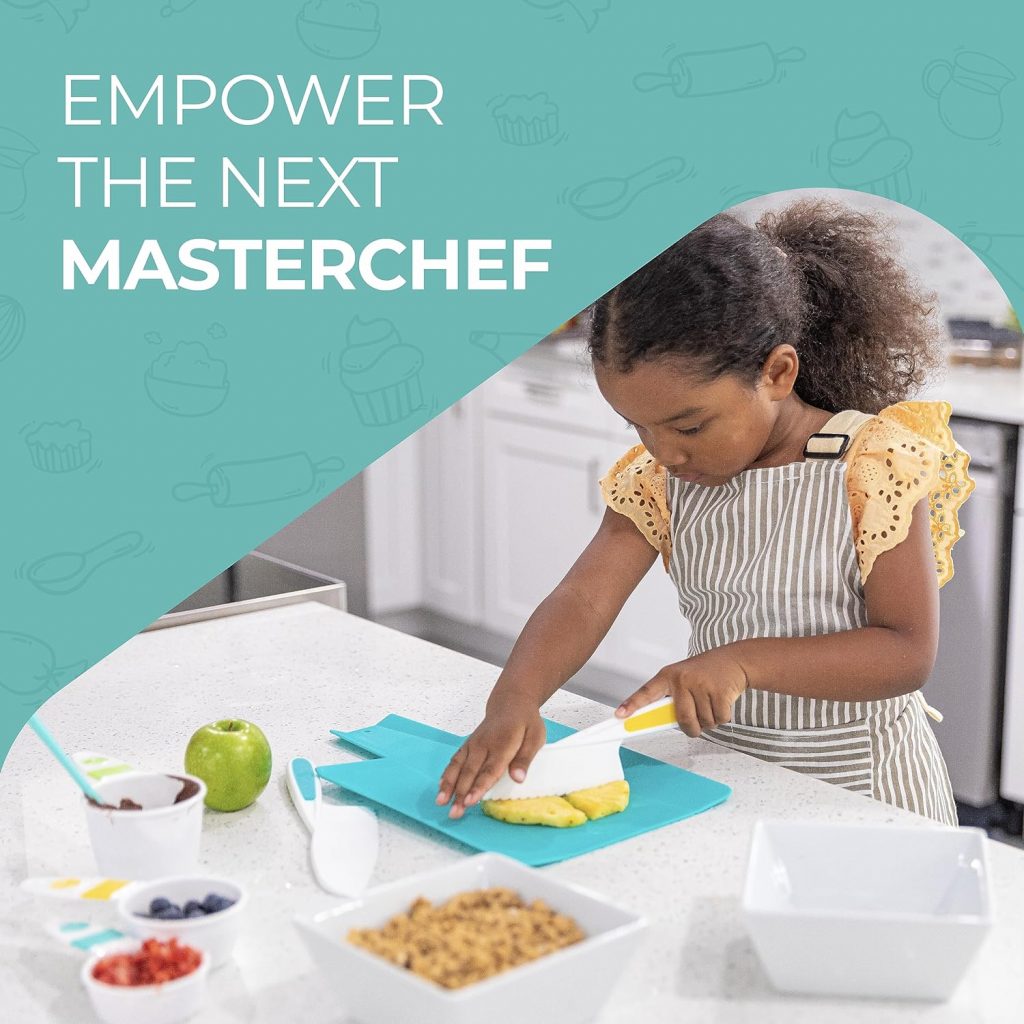
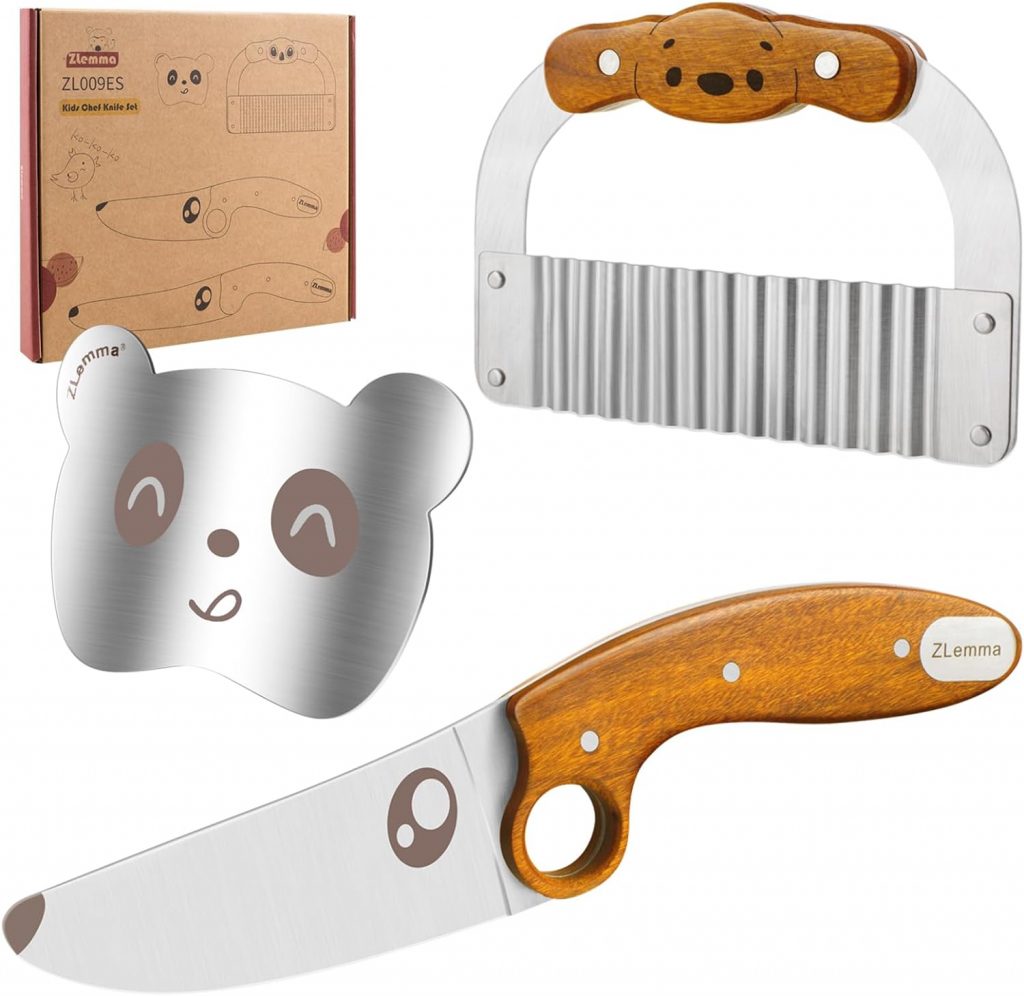
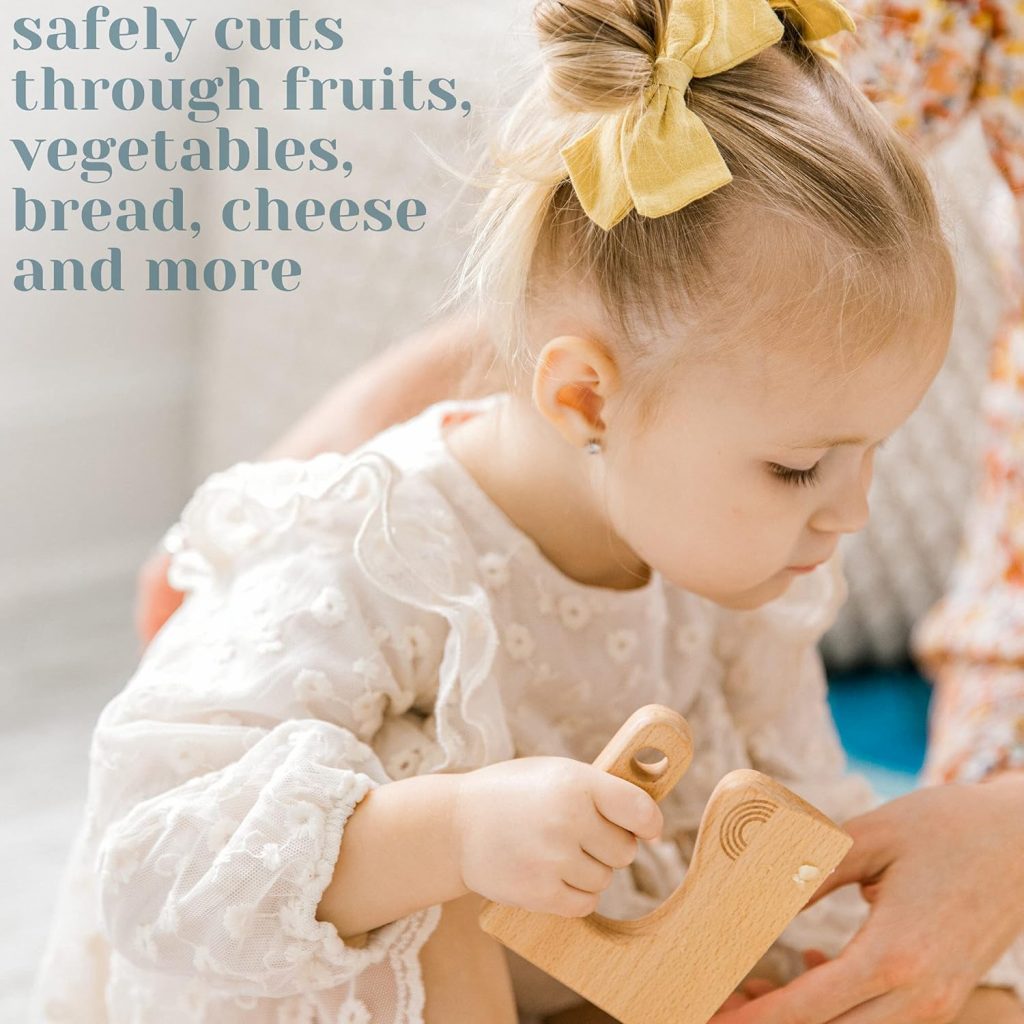
Measuring and Math:
Understanding measurements and basic math skills are fundamental in cooking. Kids should learn how to measure ingredients using measuring cups and spoons, understand fractions, and work with recipes that involve different measurements.
“Ratio: The Simple Codes Behind the Craft of Every Day Cooking”, Michael Ruhlman’s groundbreaking New York Times bestseller takes us to the very “truth” of cooking: it is not about recipes but rather about basic ratios and fundamental techniques that makes all food come together, simply.
When you know a culinary ratio, it’s not like knowing a single recipe, it’s instantly knowing a thousand!
Why spend time sorting through the millions of cookie recipes available in books, magazines, and on the Internet? Isn’t it easier just to remember 1-2-3? That’s the ratio of ingredients that always make a basic, delicious cookie dough: 1 part sugar, 2 parts fat, and 3 parts flour. From there, add anything you want—chocolate, lemon and orange zest, nuts, poppy seeds, cinnamon, cloves, nutmeg, almond extract, or peanut butter, to name a few favorite additions. Replace white sugar with brown for a darker, chewier cookie. Add baking powder and/or eggs for a lighter, airier texture. Ratios are the starting point from which a thousand variations begin.
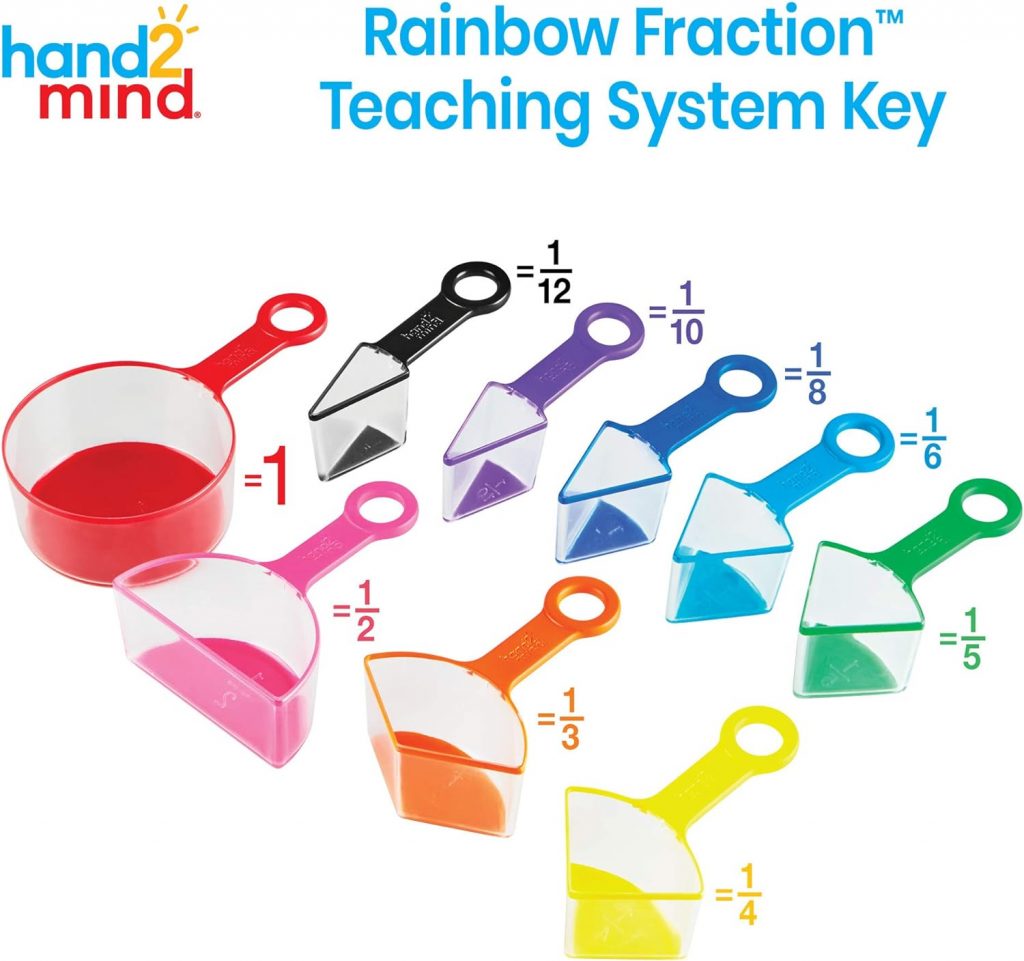
Stovetop Safety:
Teaching kids how to safely use the stovetop is essential. They should learn how to adjust heat levels, use kid-sized pot holders, and understand basic stovetop safety to prevent burns and accidents.
Following Recipes:
Reading and following a recipe is a valuable skill. Kids should learn how to read and comprehend recipes, follow step-by-step instructions, and understand the importance of accurate measurements and timing.
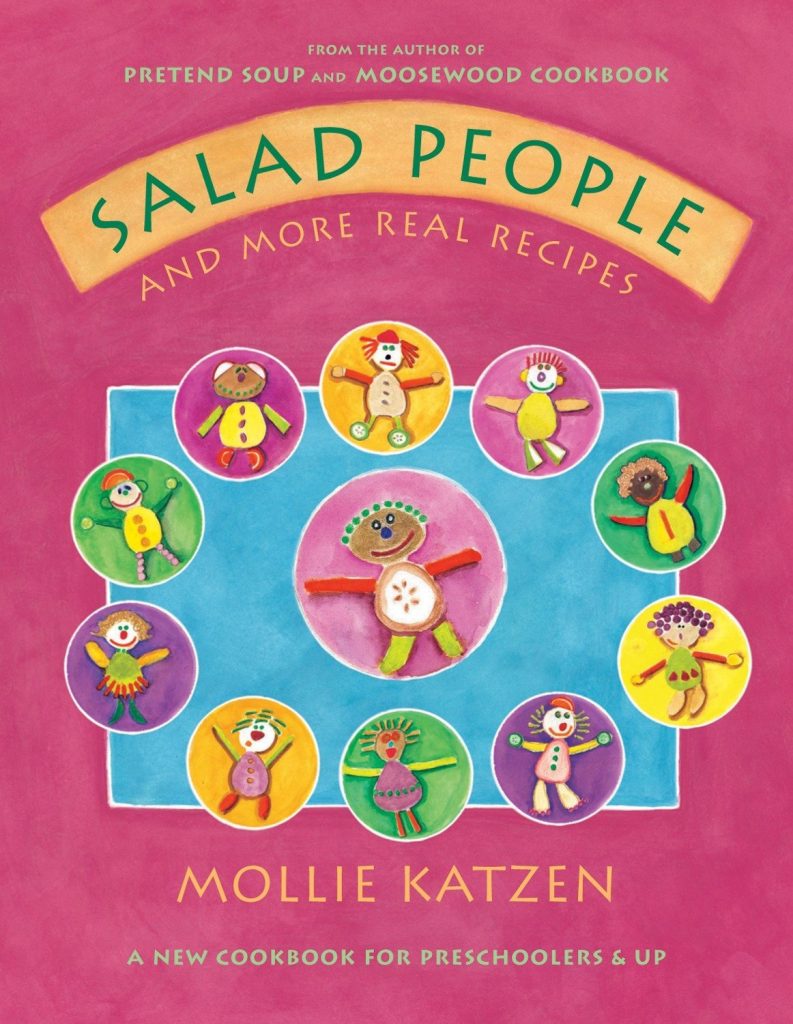
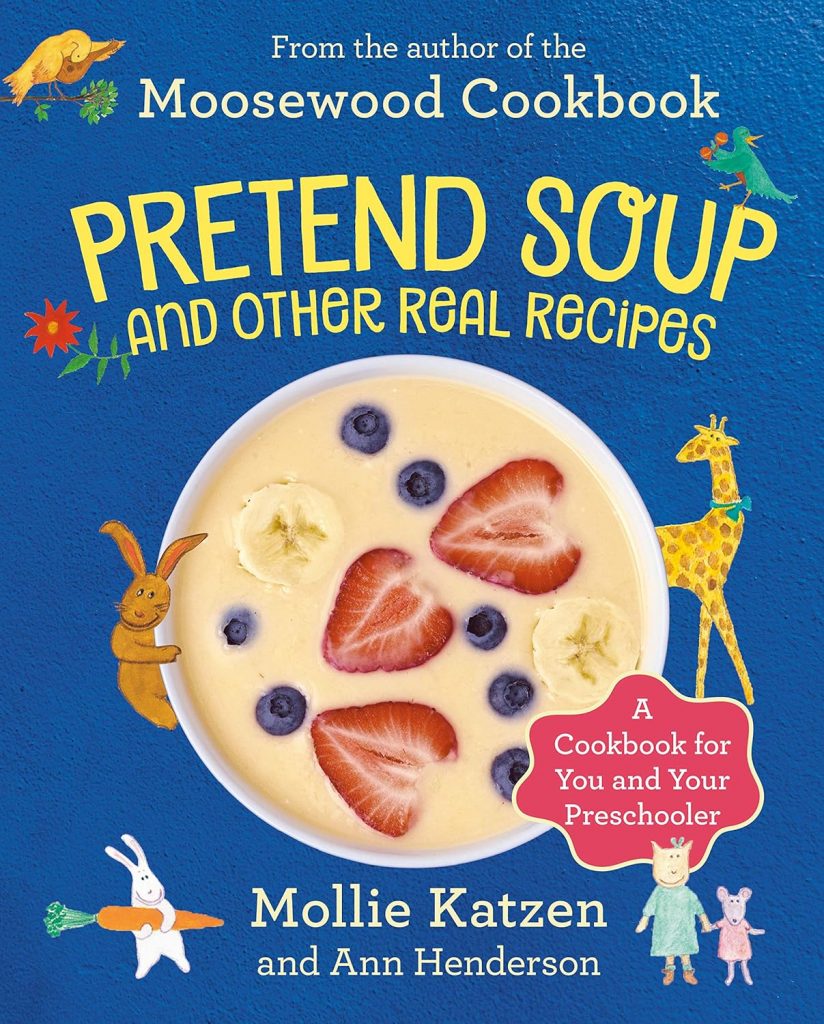
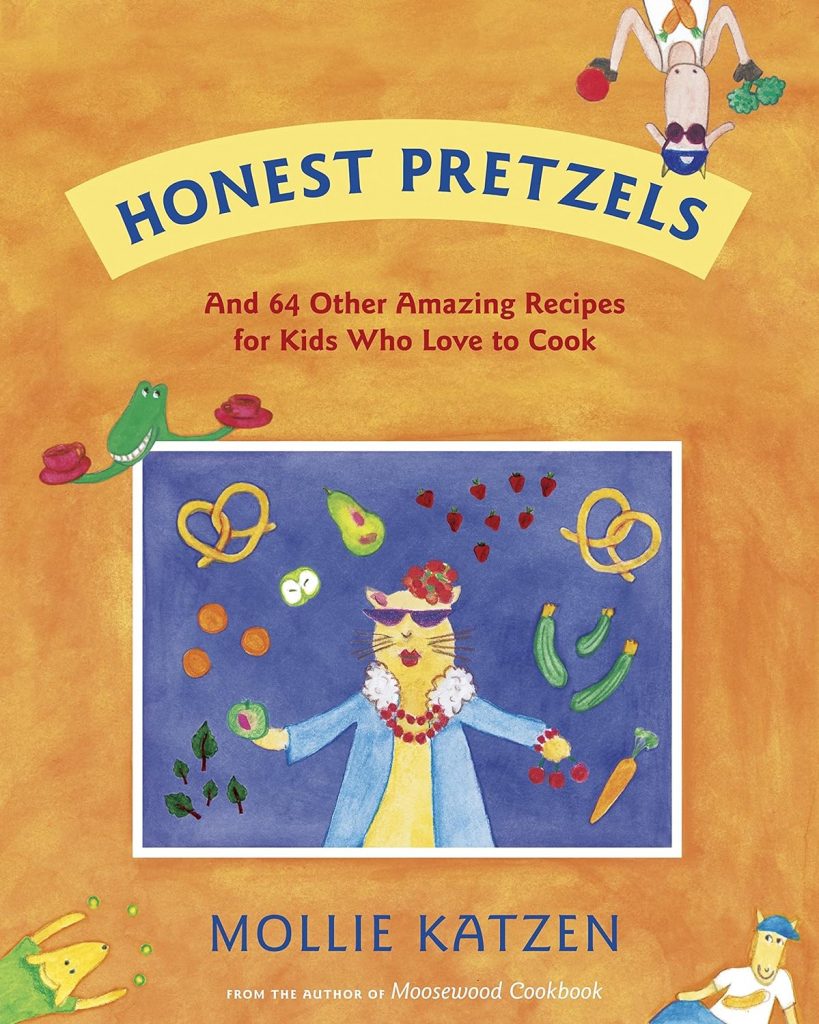
Food Safety and Hygiene:
Teaching kids about food safety, including washing hands, proper food handling, and understanding basic hygiene in the kitchen, is crucial. They should learn about cross-contamination, proper storage of food, and the importance of clean cooking surfaces and tools.
On our Finding Balance in Your Home and Homeschool episode, we talked about teaching your kids to help with chores. We discussed how to make a grocery list, budget, and shop for ingredients – we even created a detailed menu planner you can download for free! Mastering all of these basic essential kitchen skills will not only equip your kids with practical skills but it will also instill a sense of pride and a love for cooking.
Knowing how to cook some fundamental dishes can be incredibly useful. As I mentioned earlier, especially when your kids are heading off to college!
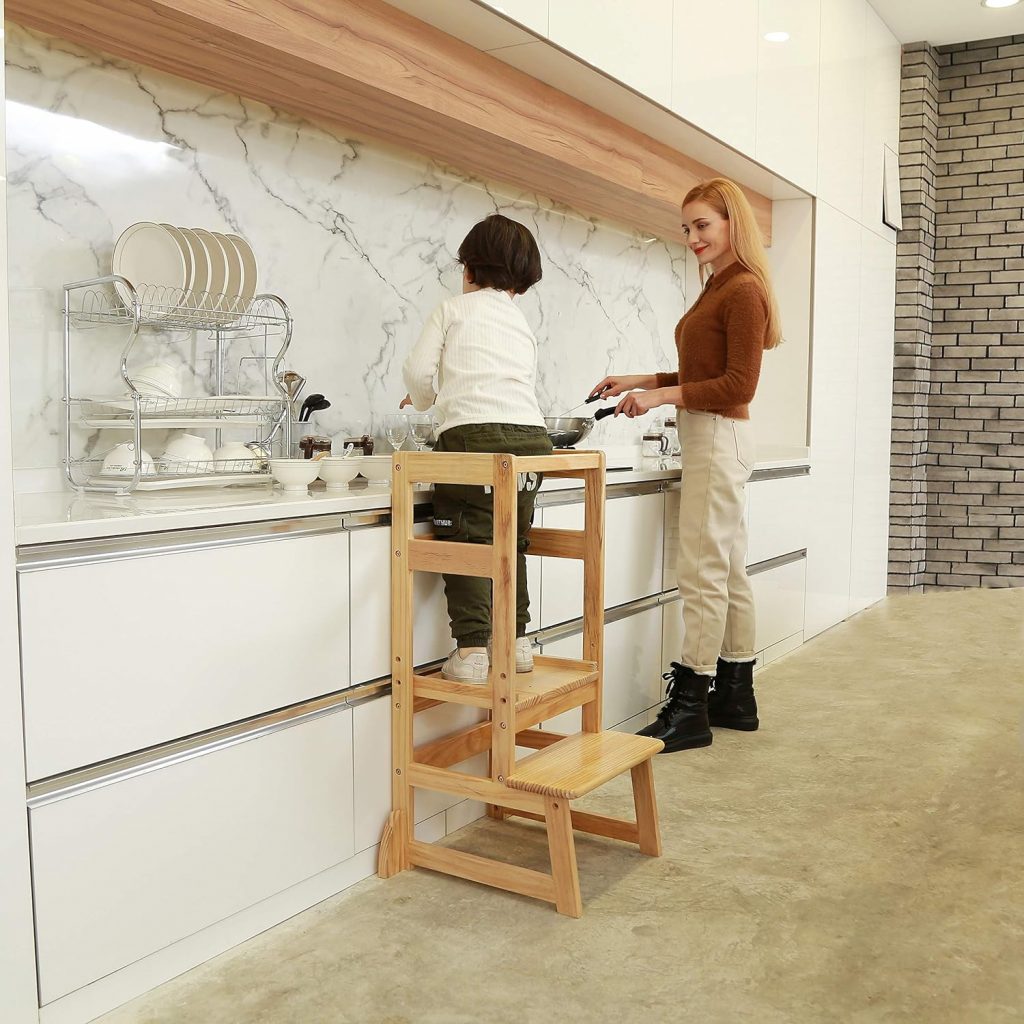
Essentials Everyone Should Know How to Cook (12:43)
Here are ten essential dishes that can serve as a foundation for various cooking skills:
- Pasta: Being able to cook pasta opens the door to countless dishes. It’s a versatile and simple staple.
- Eggs: Mastering the art of cooking eggs (scrambled, fried, boiled) offers a quick, nutritious meal for any time of day. Adventure kids omelets
- Rice: Learning to cook rice is a fundamental skill for many cuisines. I have graduated from the stove top to this super fancy Japanese rice cooker that I love, but knowing how to make rice on the stove is a skill everyone should have,
- Soup: Making a basic soup teaches the principles of building flavors and can be easily adapted with various ingredients.
- Stir-Fry: Stir frys are an easy and quick way to throw a meal together with tons of variations. Understanding stir-frying techniques opens the door to quick and healthy meals.
- Salad Dressing: Creating your own salad dressing introduces the basics of emulsification and flavor balancing.
- Homemade Pizza: Making pizza from scratch teaches the basics of baking and flavor combinations, a homemade crust is really such a simple recipe with just a couple of ingredients
- Roast Chicken: Roasting a whole chicken is a skill that can lead to various meals and is a classic comfort food.
- Grilled Cheese Sandwich: It’s a simple yet satisfying dish that you can make in a pinch on a low budget. When kids learn how to make this it helps them understand heat control. And you can get really creative and make gourmet grilled cheese sandwiches.
- Baked Goods (like muffins or cookies): Understanding the basics of baking allows for sweet treats or breakfast options and teaches precise measurements and oven skills.
All these dishes cover a range of cooking techniques and ingredients and teaching them can provide a solid foundation for both beginners and those looking to expand their culinary skills. We didn’t talk about grilling but that’s a great skill too!
Over the years, we have used a lot of resources to help teach our children how to cook and some of them were fantastic and some of them were not so great. We wanted to share some of our favorites with you.
Favorite Cookbooks for Kids (20:02)
Several of our recommendations are cookbooks that cater specifically to kids and they can make cooking both educational and fun. Here are some of our favorites for their engaging recipes and kid-friendly approach:
“The Complete Cookbook for Young Chefs” by America’s Test Kitchen Kids
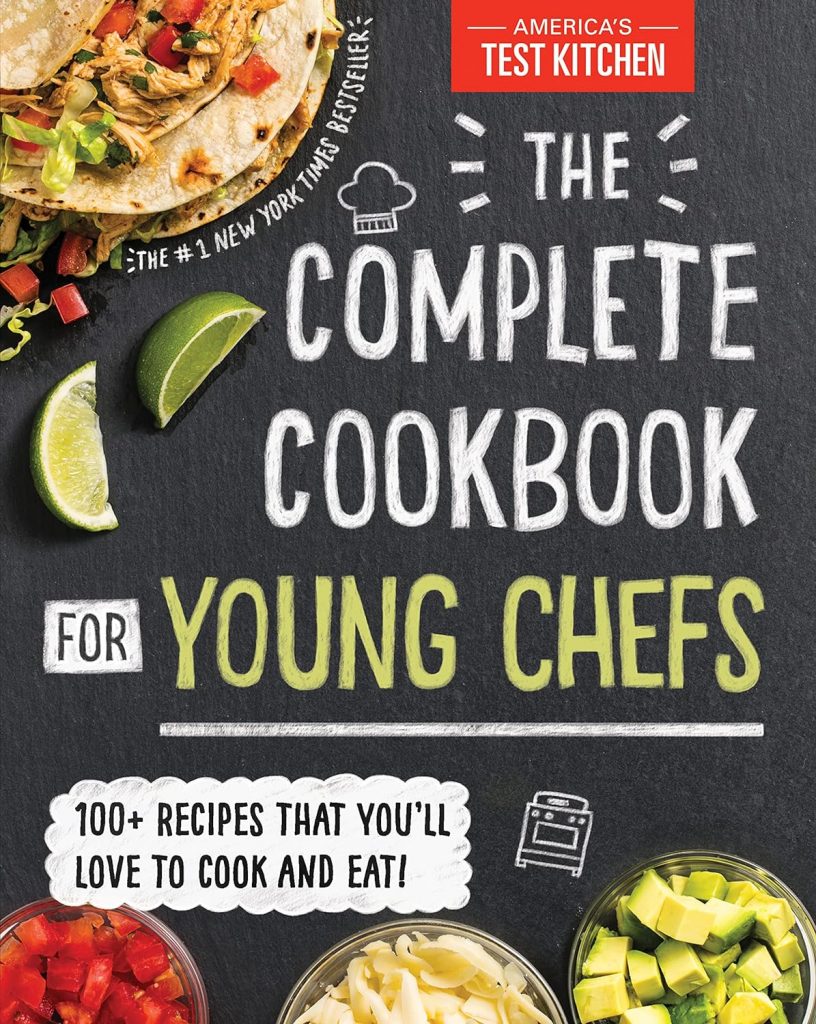
“Kid Chef Bakes” by Lisa Huff
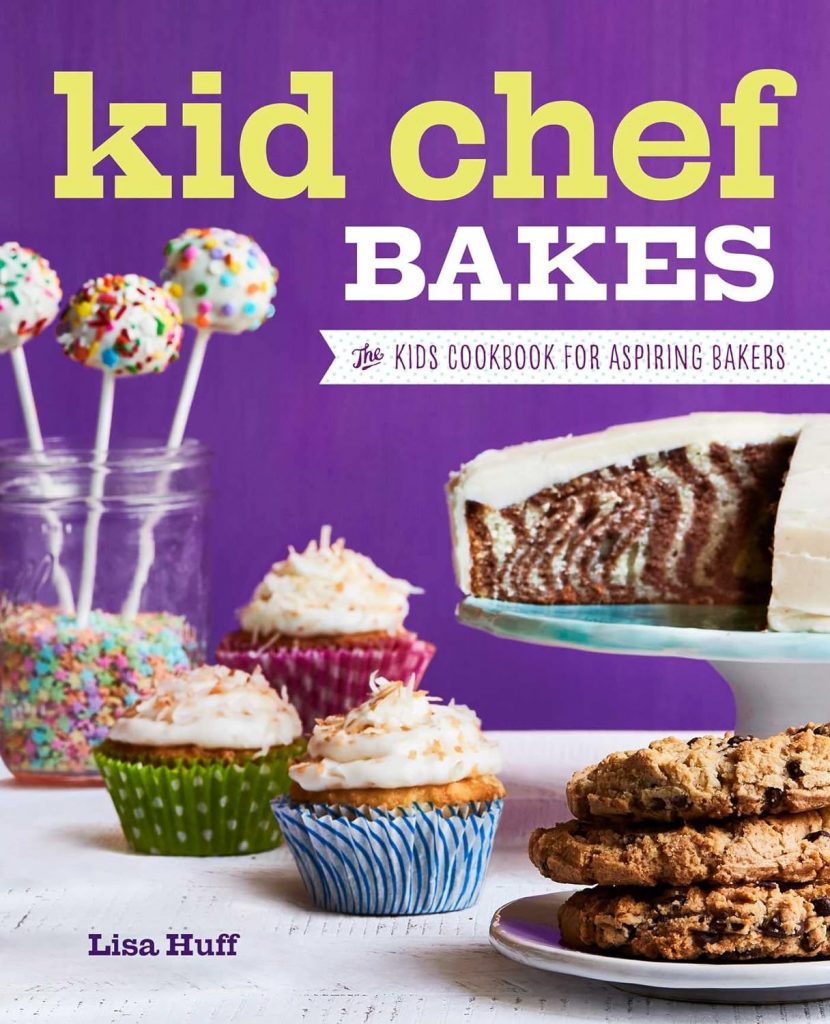
“Cooking Class: 57 Fun Recipes Kids Will Love to Make (and Eat!)” by Deanna F. Cook
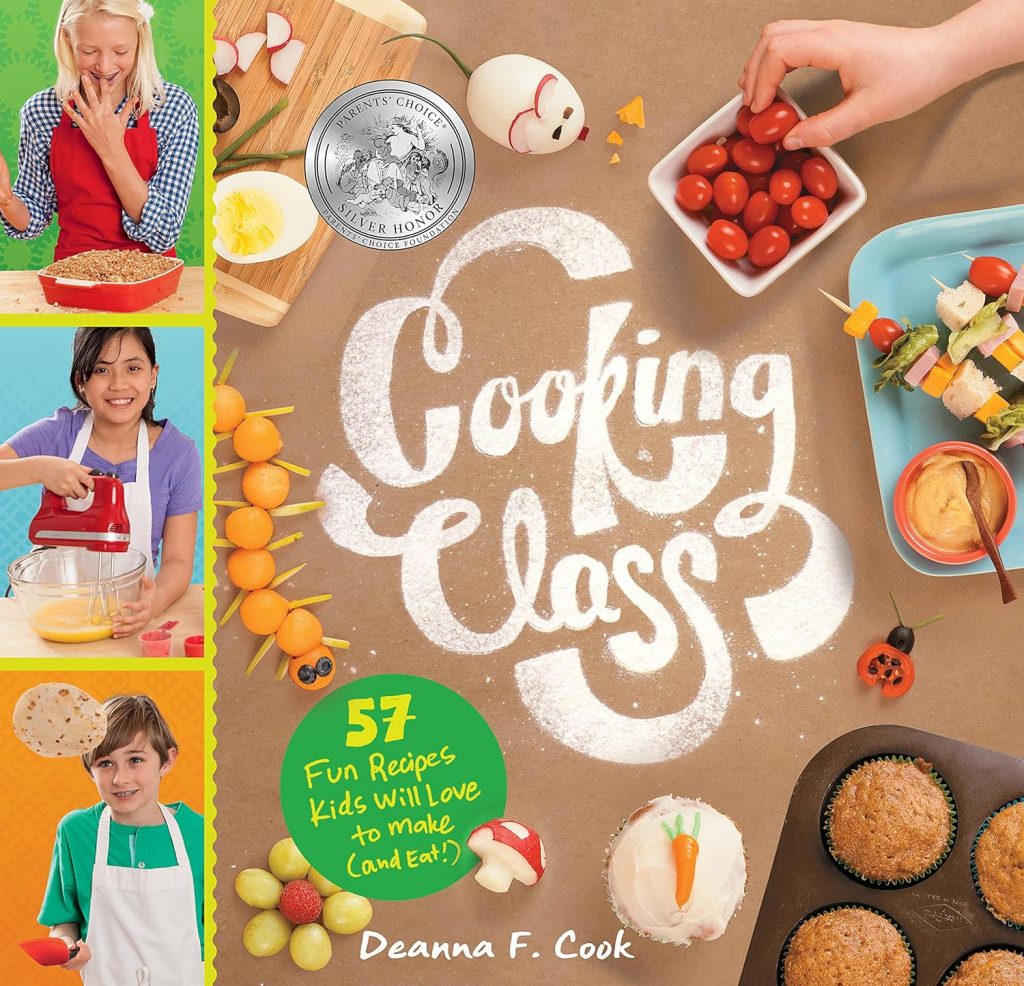
“The Disney Princess Cookbook” by Disney Book Group
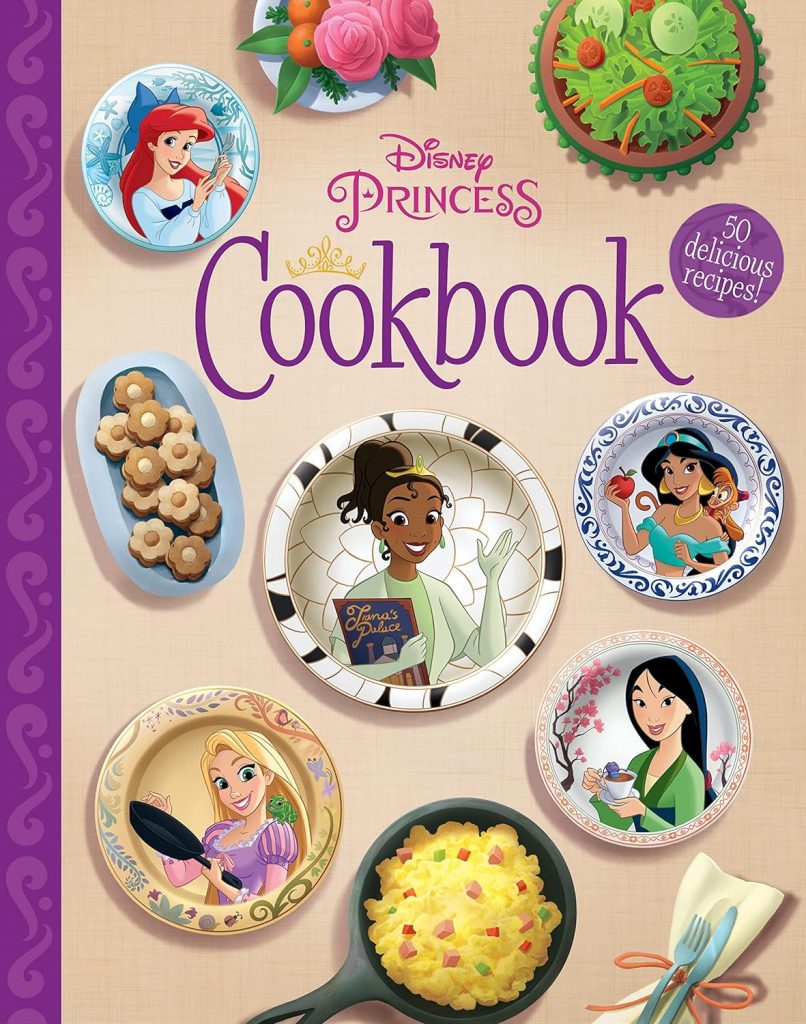
“The Unofficial Harry Potter Cookbook” by Dinah Bucholz
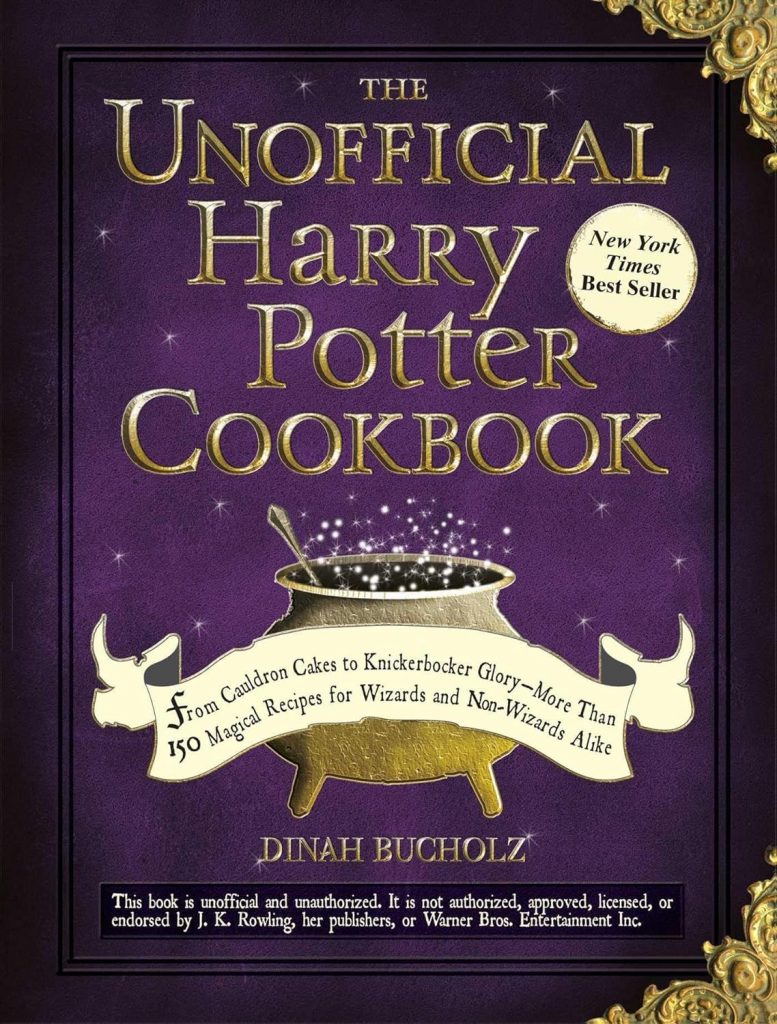
MasterChef Junior Cookbook: Bold Recipes and Essential Techniques to Inspire Young Cooks” by MasterChef Junior
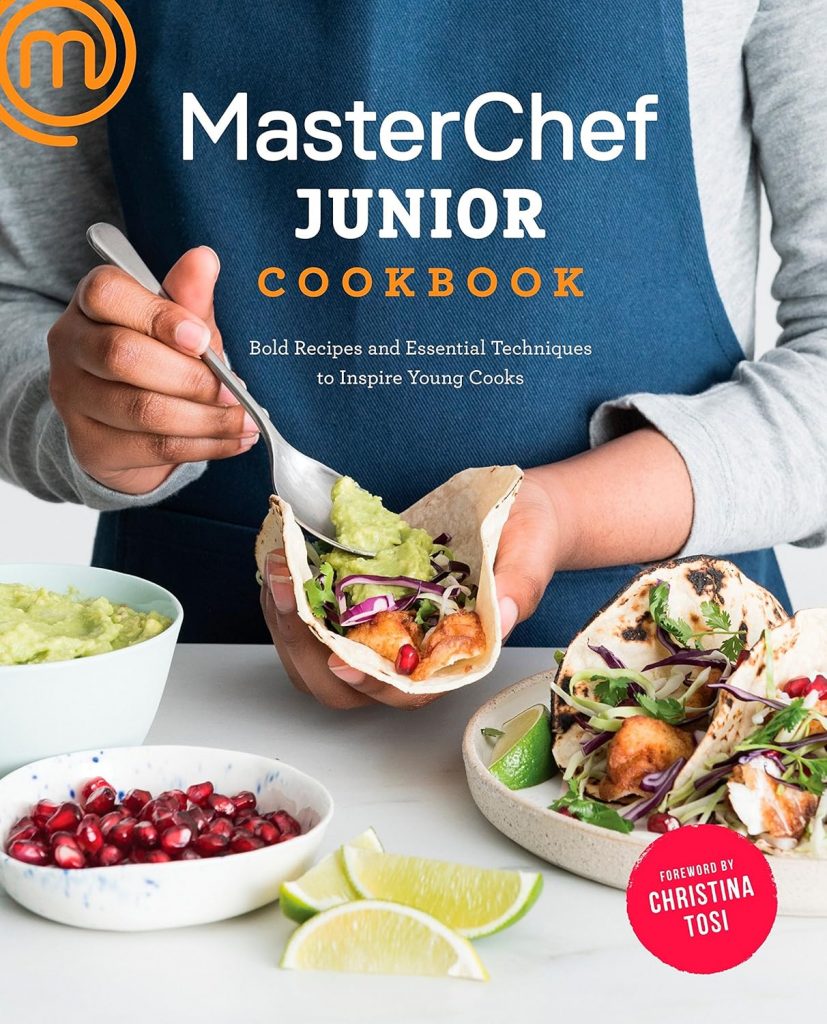
“Good Eats!” by Alton Brown
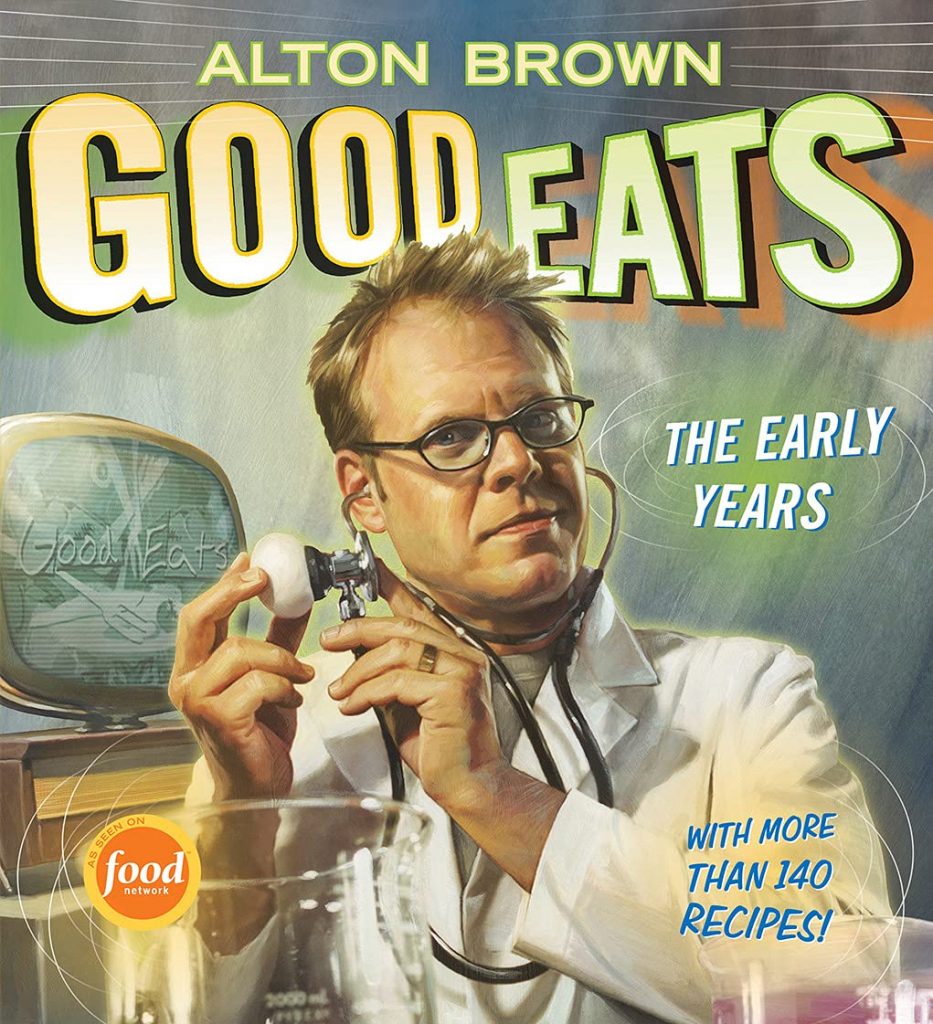
“The Pioneer Woman Cooks” by Ree Drummand
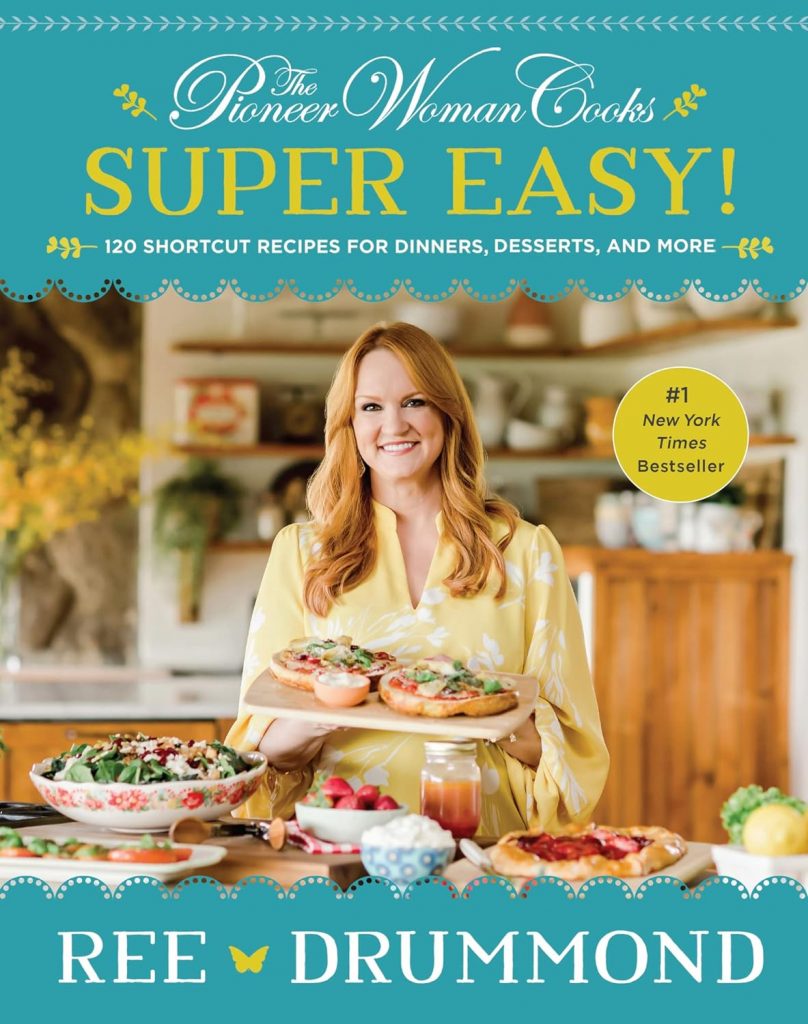
These cookbooks not only offer delicious recipes but also incorporate educational elements, teaching kids about nutrition, kitchen safety, and the joy of cooking. They often feature colorful illustrations and easy-to-follow steps, making the cooking experience enjoyable and accessible for children.
Now I am hungry! This was a lot of fun! I hope we’ve inspired you to get in the kitchen with your kids and empower them with these essential skills that will last a lifetime. Even young toddlers can help by ripping lettuce leaves for a family salad. Kids are always more likely to eat dishes when they’ve had a hand in preparing them. So get cooking!
This Week’s Freebie:
